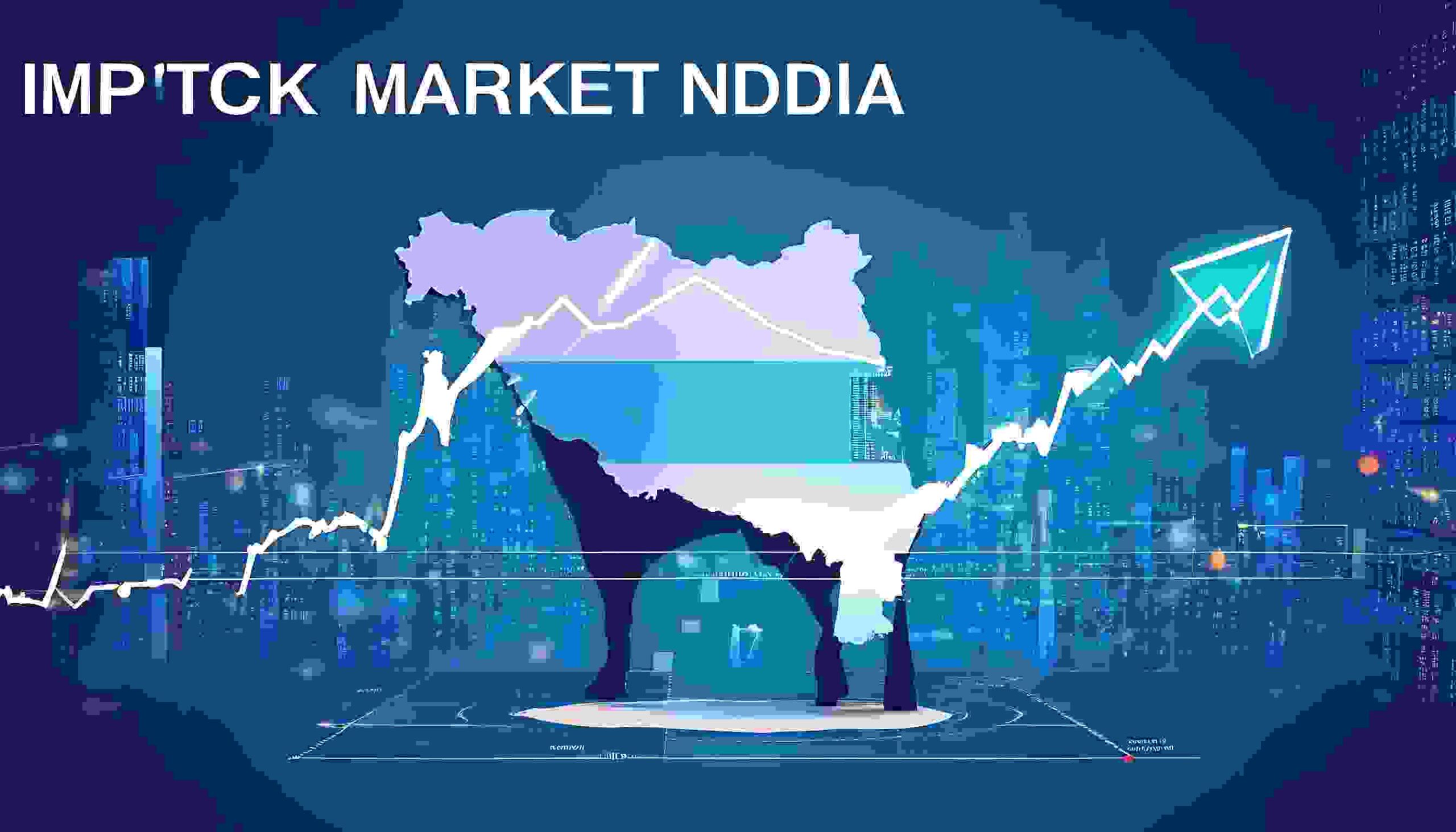How can election impact stock market in India 2024- An Introduction
How Can election impact stock market in India 2024- Indian General Election and Its Potential Effects on the Stock Market—An Overview.The ever-changing stock market is frequently seen as an indicator of the state and future of a nation’s economy in the complex world of finance. Investors and market observers are keeping a close eye on the Indian stock market in anticipation of the 2024 general elections. A country’s political climate, economic policies, investor mood, and market volatility are all impacted by its elections. Examining the possible outcomes of the 2024 Indian General Elections and how they could affect the Indian stock market is the primary objective of this article.
Both the political scene and the financial markets are expected to be rocked by the 2024 Indian General Election. Investor mood, economic policy, and market volatility might all be impacted by the election’s outcome in India, which could have far-reaching consequences for the stock market there. The purpose of this piece is to go into these possible effects and offer investors some guidance for the 2024 election season.
How can election impact stock market in India 2024(The Political-Financial Nexus)
How Can election impact stock market in India 2024-Politics and finance are inextricably linked. Government policy has the potential to have a direct impact on the economy, shaping variables such as interest rates, inflation, and economic growth. These elements, in turn, play a key influence in influencing stock market performance. Therefore, the outcome of the 2024 election could greatly alter the trajectory of the Indian stock market.

How can election impact stock market in India 2024(Potential Election Outcomes and Market Impact)
Elections can have a substantial impact on the stock market as they bring about changes in the political climate, which can affect economic policy and investor mood. Here are some conceivable scenarios for the 2024 Indian General Elections and their potential influence on the stock market:
1. Present government wins with over 260 seats: If the present government wins with an absolute majority, it could imply political stability, which is frequently seen positively by investors. This might lead to a surge in the stock market, with the Sensex potentially rising anywhere between 0% and 5% in the three months following the elections.
2. Current administration gets less than 240 seats: If the lead party, wins less than 240 seats and needs to create a coalition government, then Indian markets could tumble by 5-7%.If no single party gets a majority and a coalition government is formed, this might lead to political uncertainty. Markets often abhor uncertainty, which could contribute to higher market volatility.
3. Leading party obtains around 225+ seats: If the leading party gets around 225+ seats and gains control of the government, but a different party has a strong position in the house, the stock market might see a major decrease of up to 20-25%.
4. Present government collapses: If the present administration fails, and the main party receives fewer than 200 seats, forming a weak coalition with little influence, the stock market might crash by a huge 40%.If the present administration is voted out and a new party comes into power, the market’s reaction will rely on the new government’s projected economic policies. If the policies are seen as business-friendly, the market could react positively. Conversely, if the measures are regarded as damaging to commercial interests, the market could react negatively.
Please note that these are merely predictions and the real impact could differ dependent on several factors like economic conditions, world events, and market sentiment. It’s always advisable to make informed judgments when investing in the stock market.
How can election impact stock market in India 2024(Understand political factor -why it impacts)
Let’s go deeper into the political aspects that can effect the stock market:
1. Government Policies: Government policies can considerably influence the economy and, by extension, the stock market. Policies relating to taxation, interest rates, trade, and regulation can all effect corporate profitability and investor confidence.
2. Political Stability: Political stability is vital for a successful economy. Uncertainty over government stability might lead to market volatility. Stable administrations are frequently considered as advantageous for the stock market as they can execute long-term economic initiatives.
3. Election Results: The outcome of elections might trigger changes in the stock market. If the markets support the winning party, there could be a rally in the stock market. Conversely, if the outcome is not what the market expected, there could be a short dip.
4. Geopolitical Events: Events such as wars, terrorism, and diplomatic conflicts can create instability in global markets. These incidents can influence investor confidence and produce market volatility.
5. Trade Policies: Policies connected to international trade might effect specific segments of the market. For example, placing taxes on imports might increase expenses for companies that rely on imported items, which can effect their stock values.
6. Regulatory Changes: Changes in legislation might effect numerous sectors. For instance, greater environmental laws might influence industries such as energy, manufacturing, and transportation.
In conclusion, political issues play a considerable effect in the success of the stock market. Investors need to keep a careful eye on political developments and comprehend their potential impact on their assets.
How can election impact stock market in India 2024(Historical trends: election result day)
Historically, the stock market has showed diverse trends in response to election results. Here are some instances from past Indian General Elections:
– 1999 Election (Prime Minister: Atal Bihari Vajpayee): The market recorded a return of 50.7% one year before the election, 3.3% one month before, and -0.8% one month after.
The two-year return was 37.6%.
– 2004 Election (Prime Minister: Dr. Manmohan Singh): The market recorded a return of 98.1% one year before the election, -7.5% one month before, and -14.4% one month after.
The two-year return was 121.5%.
– 2009 Election (Prime Minister: Dr. Manmohan Singh): The market recorded a return of -24.9% one year before the election, 26.8% one month before, and 6.8% one month after.
The two-year return was 7.0%.
– 2014 Election (Prime Minister: Narendra Modi): The market recorded a return of 16.6% one year before the election, 8.0% one month before, and 7.1% one month after.
The two-year return was 37.1%.
– 2019 Election (Prime Minister: Narendra Modi): The market recorded a return of 5.2% one year before the election, -0.4% one month before, and 0.1% one month after.
The two-year return was 2.4%.
These statistics demonstrate that while the stock market can be turbulent around the time of elections, it has generally exhibited favorable returns in the long term. However, previous performance does not guarantee future results, and investors should always make decisions based on their own financial goals and risk tolerance.
The Indian stock market has traditionally demonstrated diverse reactions to the general elections. Here’s a basic review of how the market responded post-election year-wise:
– 1991 – Congress Era:
The assassination of Prime Minister Rajiv Gandhi caused market turmoil. However, under PV Narasimha Rao’s leadership, the Congress party was able to rebuild market faith by executing reforms, liberalising the economy, and attracting in foreign money.
– 1996 to 1998:
The Asian Financial Crisis and political turmoil led to a fall in market confidence.
– 1999 – NDA in Power:
The market felt more solid following the National Democratic Alliance’s (NDA) triumph under the leadership of Atal Bihari Vajpayee. The Sensex climbed by over 7% and maintained its upward trajectory for the following three months.
– 2004 – Congress Back to Power:
The market saw a 15% loss in two to three trading days following the 2004 election due to the results not aligning with market sentiment.
In general, there is short-term volatility in the Indian stock market both before and after the election. However, the government’s capacity to implement policies and maintain an atmosphere that is beneficial for businesses will ultimately determine the direction of events in the long run.
Please note that this is a historical analysis and the market’s reaction to future elections can be influenced by a variety of factors. It’s always advisable to make investing decisions based on thorough research and specific financial goals.
More to understand: Election Cycle Theory: Meaning, Overview, Examples. https://www.investopedia.com/terms/p/presidentialelectioncycle.asp.
Readers can also view best 2024 stocks : https://financeinsightblog.com/best-stocks-for-2024-in-india/
How can election impact stock market in India 2024- Conclusion
How Can election impact stock market in India 2024- In conclusion, the 2024 Indian General Election is expected to be a critical event that could greatly affect the trajectory of the Indian stock market. The conceivable election results, whether it’s an absolute majority win for the present administration, the establishment of a coalition government, or a change in government, each hold their own consequences for market performance. As investors, it’s vital to keep informed and understand these dynamics to handle the uncertainty of the election period efficiently. However, it’s equally crucial to note that investment should always align with one’s financial goals and risk tolerance, regardless of the political context. Ultimately, a well-diversified portfolio that’s customized to an individual’s financial objectives and risk profile can assist weather the anticipated market volatility during such important occurrences.










